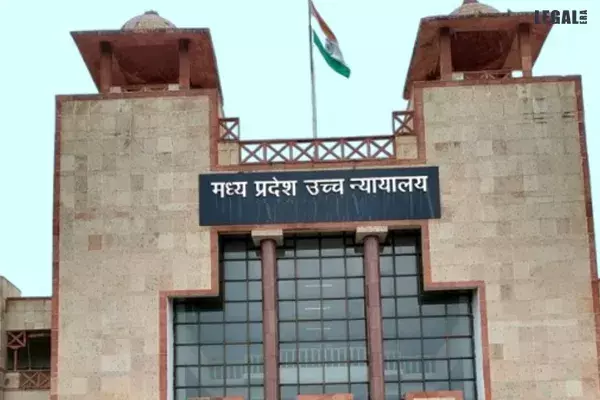Madhya Pradesh High Court: Article 137 of Limitation Act Shall Govern Period of Limitation for Section 3G of National Highways Act
The Madhya Pradesh High Court by its single judge Justice Miling Ramesh Phadke has held that though there is no period of;

Madhya Pradesh High Court: Article 137 of Limitation Act Shall Govern Period of Limitation for Section 3G of National Highways Act
The Madhya Pradesh High Court by its single judge Justice Milind Ramesh Phadke has held that though there is no period of limitation provided for referring the dispute to arbitrator under Section 3G(5) of the National Highways Act, 1956, however, it is governed by the residuary clause as contained under Article 137 of the Limitation Act wherein a period of 3 years is provided.
The Court observed that the cause of action for referring the dispute to arbitrator under Section 3G(5) of the National Highways Act, 1956 arises on the date of the determination of the amount of compensation by the competent authority under Section 3G(1) of the Act.
The facts of the case are that the petitioner owned a land admeasuring .0209 hectare. Out of the aforesaid land, a piece of 0.020. hectare was diverted from agricultural land to commercial land by the then Commissioner of the district in the year 2006. On 26 December, 2012, a land admeasuring 0.009 hectare was acquired by the respondent (NHAI) an amount of Rs. 14,850/- was given as compensation by treating the acquired land as agricultural land instead of commercial land.
It was further argued that the cause of action which accrued to the petitioner was only after 2018 when the revenue entries were corrected and the name of the petitioner was included in the revenue records and as there is no period of limitation prescribed under the National Highways Act, 1956, the residuary Clause of Article 113/137 of the Limitation Act would be applicable for which the period of limitation is three years and as after 2018, the said reference was made within the period of three years as provided under the residuary Clause of the Limitation Act the reference was within limitation.
The learned Collector while dismissing the application under Section 5 of the Limitation Act holding it to be time barred by 9 years reckoning the period of limitation from the date of the award was per se illegal.
Aggrieved by the dismissal of the reference, the petitioner filed the writ petition before the High Court challenging the decision of the arbitrator.
The Court noted that the award of compensation was passed on 26 December, 2012 and the land of the petitioner was treated as an agricultural land and not a commercial land, therefore, the cause of action for referring the dispute to arbitrator arose on the same date in favor of the petitioner, however, the reference before the arbitrator was filed much later in the year 2021 which is patently beyond the period of limitation.
“Though it is also an admitted fact that no case of limitation has been prescribed under the National Highways Act, 1956 in such cases the residuary clause as contained under Article 113/137 of the Limitation Act can be said to be applicable, wherein a period of limitation of 3 years is provided, but the aforesaid period of 3 years could be reckoned only from the date of cause of action and admittedly the cause of action to the petitioner has arisen in the year, 2012 as and when the award of land acquisition was passed and the fact of passing of the award was well within the knowledge of the petitioner,” the Judge discerned.
The Court held that the cause of action to refer a dispute to arbitrator arises on the date of the award of compensation and any reference must be made within the limitation period.
It held that though there is no period of limitation provided for referring the dispute to arbitrator under the said Section, however, it is governed by the residuary clause as contained under Article 137 of the Limitation Act wherein a period of 3 years is provided.
The Court upheld the order passed by the Collector wherein it had dismissed the application filed under Section 5 of the Limitation Act as time barred.
Accordingly, the petition being sans merit was dismissed by the High Court.

